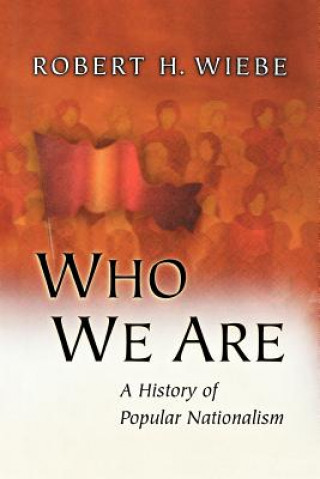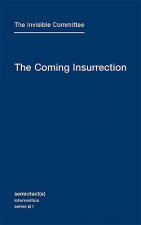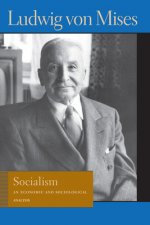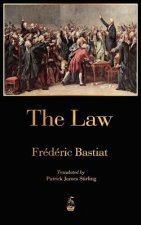
Kód: 04641960
Who We Are
Autor Robert H. Wiebe
How did educated Westerners make an enemy of an inspiration that has changed the lives of billions? Why is nationalism synonymous with atavism, fanaticism, xenophobia, and bloodshed? In this book, Robert Wiebe argues that we too o ... celý popis
- Jazyk:
 Angličtina
Angličtina - Vazba: Brožovaná
- Počet stran: 304
Nakladatelství: Princeton University Press, 2012
- Více informací o knize

1093 Kč

Skladem u dodavatele v malém množství
Odesíláme za 10-14 dnů
Potřebujete více kusů?Máte-li zájem o více kusů, prověřte, prosím, nejprve dostupnost titulu na naši zákaznické podpoře.
Přidat mezi přání
Mohlo by se vám také líbit
Dárkový poukaz: Radost zaručena
- Darujte poukaz v libovolné hodnotě a my se postaráme o zbytek.
- Poukaz se vztahuje na celou naši nabídku.
- Elektronický poukaz vytisknete z e-mailu a můžete ihned darovat.
- Platnost poukazu je 12 měsíců od data vystavení.
Více informací o knize Who We Are
Nákupem získáte 109 bodů
 Anotace knihy
Anotace knihy
How did educated Westerners make an enemy of an inspiration that has changed the lives of billions? Why is nationalism synonymous with atavism, fanaticism, xenophobia, and bloodshed? In this book, Robert Wiebe argues that we too often conflate nationalism with what states do in its name. By indiscriminately blaming it for terrorism, ethnic cleansing, and military thuggery, we avoid reckoning with nationalism for what it is: the desire among people who believe they share a common ancestry and destiny to live under their own government on land sacred to their history. For at least a century and a half, nationalism has been an effective answer to basic questions of identity and connection in a fluid world. It quiets fears of cultural disintegration and allows people to pursue closer bonds and seek freedom. By looking at nationalism in this clearer light and by juxtaposing it with its two great companion and competitor movements - democracy and socialism - Wiebe is able to understand nationalism's deep appeal and assess its historical record. Because Europeans and their kin abroad monopolized nationalism before World War I, Wiebe begins with their story, identifying migration as a motive force and examining related developments in state building, race theory, church ambition, and linguistic innovation. After case studies of Irish, German, and Jewish nationalism, Wiebe moves to the United States. He discusses America's distinctive place in transatlantic history, emphasizing its liberal government, cultural diversity, and racism. He then traces nationalism's spread worldwide, evaluating its adaptability and limits on that adaptability. The state-dominated nationalism of Japan, Turkey, and Mexico are considered, followed by Pan-Africanism and Nigeria's anticolonial-postcolonial nationalism. Finally, Wiebe shows how nationalism became integrated into a genuinely global process by the 1970s, only to find itself competing at a disadvantage with god - and gun-driven alternatives. This book's original answers to imperative questions will meet with deep admiration and controversy. They will also change the terms on which nationalism is debated for years to come.
 Parametry knihy
Parametry knihy
Zařazení knihy Knihy v angličtině Society & social sciences Politics & government Political ideologies
1093 Kč
- Plný název: Who We Are
- Autor: Robert H. Wiebe
- Jazyk:
 Angličtina
Angličtina - Vazba: Brožovaná
- Počet stran: 304
- EAN: 9780691155524
- ISBN: 0691155526
- ID: 04641960
- Nakladatelství: Princeton University Press
- Hmotnost: 458 g
- Rozměry: 157 × 233 × 18 mm
- Datum vydání: 24. June 2012
Oblíbené z jiného soudku
-

The Communist Manifesto
90 Kč -

The Unabomber Manifesto
288 Kč -

Capital
143 Kč -

Mein Kampf
766 Kč -

German Ideology
462 Kč -

How to be a conservative
429 Kč -

The Communist Manifesto
53 Kč -

Mein Kampf
709 Kč -

Notes on Nationalism
90 Kč -

Road to Serfdom
425 Kč -

Rules for Radicals
274 Kč -

Anatomy of Fascism
345 Kč -

The Virtue of Nationalism
611 Kč -

Fanged Noumena - Collected Writings 1987-2007
731 Kč -

Psychopolitics
318 Kč -

State and Revolution
175 Kč -

Mein Kampf
875 Kč -

Communist Manifesto and Das Kapital
223 Kč -

Communist Manifesto
195 Kč -

Real North Korea
356 Kč -

Post-scarcity Anarchism
394 Kč -
![What Is to Be Done? [Burning Questions of Our Movement] What Is to Be Done? [Burning Questions of Our Movement]](https://media.libris.to/jacket/08800888t.jpg)
What Is to Be Done? [Burning Questions of Our Movement]
196 Kč -

New Way Of The World
690 Kč -

Capitalism, Socialism and Democracy
389 Kč -

Coming Insurrection
304 Kč -

Socialism
352 Kč -

Mass Psychology of Fascism
417 Kč -

New Faces of Fascism
482 Kč -

Essential Writings of Karl Marx
488 Kč -

Marx'S Das Capital for Beginners
425 Kč -

Fascism for the Million
757 Kč -

Irreversible Damage
552 Kč -

American Fuehrer
1112 Kč -

Up from Liberalism
423 Kč -

Nations and Nationalism
898 Kč -

Origins and Doctrine of Fascism
1543 Kč -

Law
251 Kč -

Marx's Fate
1192 Kč -

Dogs of the Sinai
650 Kč -

Writings of Rosa Luxemburg
524 Kč -

Blackshirts and Reds
361 Kč -

Imagined Communities
366 Kč -

The Rape of the Mind
371 Kč -

Brainwashed
414 Kč -

Why Liberalism Failed
404 Kč -

Rights of Man, Common Sense, and Other Political Writings
196 Kč -

Communist Manifesto
132 Kč -

Capital
418 Kč -

Brief History of Neoliberalism
603 Kč
Osobní odběr Praha, Brno a 12903 dalších
Copyright ©2008-24 nejlevnejsi-knihy.cz Všechna práva vyhrazenaSoukromíCookies





 Vrácení do měsíce
Vrácení do měsíce 571 999 099 (8-15.30h)
571 999 099 (8-15.30h)